 W
WThe Anishinaabe are a group of culturally-related Indigenous peoples resident in what are now Canada and the United States. They also include the Odawa, Saulteaux, Ojibwe, Potawatomi, Oji-Cree, and Algonquin peoples. The Anishinaabe speak Anishinaabemowin, or Anishinaabe languages that belong to the Algonquian language family. They historically lived in the Northeast Woodlands and Subarctic.
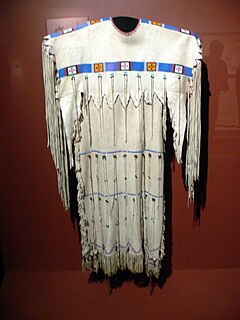 W
WThe Cheyenne are one of the indigenous people of the Great Plains whose language is of the Algonquian language family. The Cheyenne comprise two Native American tribes, the Só'taeo'o or Só'taétaneo'o and the Tsétsêhéstâhese. These tribes merged in the early 19th century. Today, the Cheyenne people are split into two federally recognized Nations: the Southern Cheyenne, who are enrolled in the Cheyenne and Arapaho Tribes in Oklahoma, and the Northern Cheyenne, who are enrolled in the Northern Cheyenne Tribe of the Northern Cheyenne Indian Reservation in Montana.
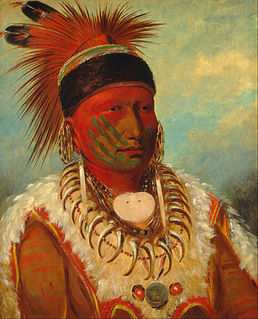 W
WThe Iowa or Ioway, known as the Bah-Kho-Je or Báxoje in their language, Chiwere, are a Native American Siouan people. Today, they are enrolled in either of two federally recognized tribes, the Iowa Tribe of Oklahoma and the Iowa Tribe of Kansas and Nebraska.
 W
WThe Iowa Tribe of Kansas and Nebraska is one of two federally recognized tribes of Iowa people. The other is the Iowa Tribe of Oklahoma.
 W
WThe Kaw Nation are a federally recognized Native American tribe in Oklahoma and parts of Kansas. They come from the central Midwestern United States. The tribe known as Kaw have also been known as the "People of the South wind", "People of water", Kansa, Kaza, Konza, Conza, Quans, Kosa, and Kasa. Their tribal language is Kansa, classified as a Siouan language.
 W
WThe Kickapoo people are an Algonquian-speaking Native American and Indigenous Mexican tribe, originating in the region south of the Great Lakes. Today, there are three federally recognized Kickapoo tribes in the United States: Kickapoo Tribe of Indians of the Kickapoo Reservation in Kansas, the Kickapoo Tribe of Oklahoma, and the Kickapoo Traditional Tribe of Texas. The Oklahoma and Texas bands are politically associated with each other. The Kickapoo in Kansas came from a relocation from southern Missouri in 1832 as a land exchange from their reserve there. Around 3,000 people are enrolled tribal members. Another band, the Tribu Kikapú, resides in Múzquiz Municipality in the Mexican state of Coahuila. Smaller bands live in Sonora and Durango.
 W
WThe Kickapoo Tribe of Indians of the Kickapoo Reservation in Kansas is one of three Federally recognized tribes of Kickapoo people. The other Kickapoo tribes in the United States are the Kickapoo Traditional Tribe of Texas and the Kickapoo Tribe of Oklahoma. The Tribu Kikapú are a distinct subgroup of the Oklahoma Kickapoo and reside on a hacienda near Múzquiz Coahuila, Mexico; they also have a small band located in the Mexican states of Sonora and Durango.
 W
WKiowa people are a Native American tribe and an indigenous people of the Great Plains of the United States. They migrated southward from western Montana into the Rocky Mountains in Colorado in the 17th and 18th centuries, and finally into the Southern Plains by the early 19th century. In 1867, the Kiowa were moved to a reservation in southwestern Oklahoma.
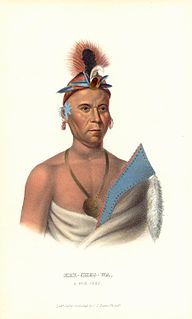 W
WThe Meskwaki are a Native American people often known by Western society as the Fox tribe. They have been closely linked to the Sauk people of the same language family. In the Meskwaki language, the Meskwaki call themselves Meshkwahkihaki, which means "the Red-Earths", related to their creation story. Historically their homelands were in the Great Lakes region. The tribe coalesced in the St. Lawrence River Valley in present-day Ontario, Canada. Under French colonial pressures, it migrated to the southern side of the Great Lakes to territory that much later was organized by European Americans as the states of Michigan, Wisconsin, Illinois, and Iowa.
 W
WThe Mingo people are an Iroquoian-speaking group of Native Americans made up of peoples who migrated west to the Ohio Country in the mid-18th century, primarily Seneca and Cayuga. Anglo-Americans called these migrants mingos, a corruption of mingwe, an Eastern Algonquian name for Iroquoian-language groups in general. Mingos have also been called "Ohio Iroquois" and "Ohio Seneca".
 W
WThe Mingo people are an Iroquoian-speaking group of Native Americans made up of peoples who migrated west to the Ohio Country in the mid-18th century, primarily Seneca and Cayuga. Anglo-Americans called these migrants mingos, a corruption of mingwe, an Eastern Algonquian name for Iroquoian-language groups in general. Mingos have also been called "Ohio Iroquois" and "Ohio Seneca".
 W
WThe Osage Nation is a Midwestern Native American tribe of the Great Plains. The tribe developed in the Ohio and Mississippi river valleys around 700 BC along with other groups of its language family. They migrated west of the Mississippi after the 17th century due to wars with Iroquois invading the Ohio Valley from New York and Pennsylvania in a search for new hunting grounds. The nations separated at that time, and the Osage settled near the confluence of the Missouri and Mississippi rivers.
 W
WThe Pawnee are a Central Plains Indian tribe that historically were based in Nebraska and Kansas and currently are based in Oklahoma. Today they are the federally recognized Pawnee Nation of Oklahoma, who are headquartered in Pawnee, Oklahoma. Their Pawnee language belongs to the Caddoan language family, and their names for themselves is Chatiks si chatiks or "Men of Men".
 W
WThe Peoria are a Native American people. Today they are enrolled in the federally recognized Peoria Tribe of Indians of Oklahoma. Historically, they were part of the Illinois Confederation.
 W
WThe Potawatomi, also spelled Pottawatomi and Pottawatomie, are a Native American people of the Great Plains, upper Mississippi River, and western Great Lakes region. They traditionally speak the Potawatomi language, a member of the Algonquian family. The Potawatomi call themselves Neshnabé, a cognate of the word Anishinaabe. The Potawatomi are part of a long-term alliance, called the Council of Three Fires, with the Ojibwe and Odawa (Ottawa). In the Council of Three Fires, the Potawatomi are considered the "youngest brother" and are referred to in this context as Bodéwadmi, a name that means "keepers of the fire" and refers to the council fire of three peoples.
 W
WPrairie Band Potawatomi Nation is a federally recognized tribe of Neshnabé, headquartered near Mayetta, Kansas.
 W
WThe Sac or Sauk are a group of Native Americans of the Eastern Woodlands culture group, who lived primarily in the region of what is now Green Bay, Wisconsin, when first encountered by the French in 1667. Their autonym is oθaakiiwaki, and their exonym is Ozaagii(-wag) in Ojibwe. The latter name was transliterated into French and English by colonists of those cultures. Today they have three federally recognized tribes, together with the Meskwaki (Fox), located in Iowa, Oklahoma and Kansas.
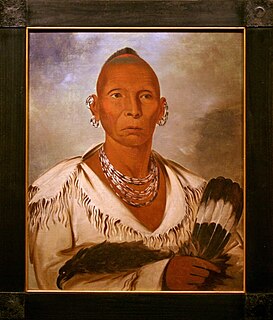 W
WThe Sac and Fox Nation of Missouri in Kansas and Nebraska is one of three federally recognized Native American tribes of Sac and Meskwaki (Fox) peoples. Their name for themselves is Nemahahaki and they are an Algonquian people and Eastern Woodland culture.
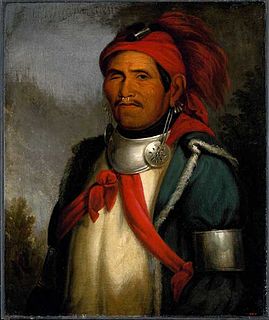 W
WThe Shawnee are an Algonquian-speaking ethnic group indigenous to North America. In colonial times they were a semi-migratory Native American nation, primarily inhabiting areas of the Ohio Valley, extending from what became Ohio and Kentucky eastward to West Virginia, Virginia, Pennsylvania, and Western Maryland; south to Alabama and South Carolina; and westward to Indiana, and Illinois.
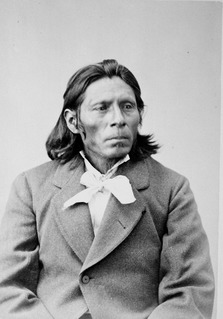 W
WThe Tawakoni are a Southern Plains Native American tribe, closely related to the Wichitas. They historically spoke a Wichita language of the Caddoan language family. Currently, they are enrolled in the Wichita and Affiliated Tribes, a federally recognized tribe.
 W
WThe Wichita people or Kitikiti'sh are a confederation of Southern Plains Native American tribes. Historically they spoke the Wichita language and Kichai language, both Caddoan languages. They are indigenous to Oklahoma, Texas, and Kansas.